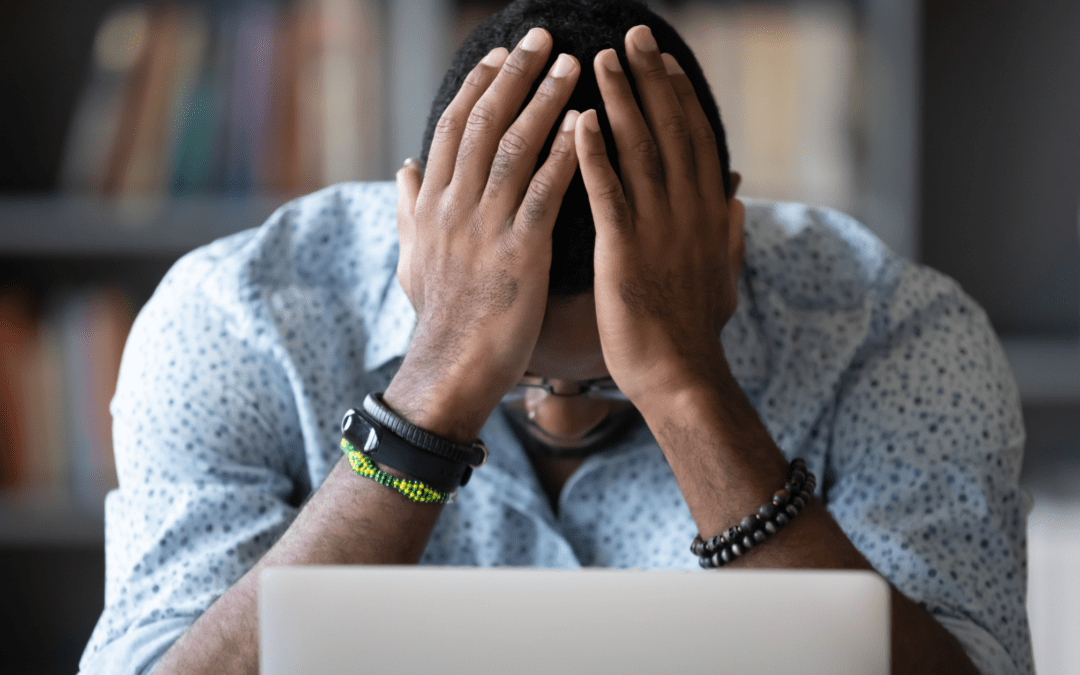Ever felt like the world is just too much?
Between breaking news alerts, constant social media updates, and the 24/7 news cycle, it’s easy to feel overwhelmed.
If you’re feeling more anxious, stressed, or even emotionally drained after scrolling through your phone, you’re not the only one.
With so much information at our fingertips, managing stress in our modern media world has become more important than ever.
Why Does Constant Exposure to News and Social Media Make Me Feel More Anxious?
Our brains aren’t built to process the endless stream of information that modern technology throws at us.
When you’re constantly exposed to the news, particularly negative or sensationalized stories, it can feel like there’s no escape. The more we see, the more our brain’s stress response kicks in, leaving us feeling on edge.
Pair that with social media, where everyone’s life seems perfect (except yours, right?), and it’s no wonder we end up feeling anxious and stressed.
Managing stress from these sources is tough because the news and social media are designed to keep you engaged.
Headlines are written to grab your attention, and algorithms feed you more of what you’ve already consumed. It’s a perfect storm for heightened anxiety.
1. How Can I Protect My Mental Health When the News Feels Overwhelming?
When the world seems like it’s falling apart (or at least that’s what the news makes it feel like), it’s essential to take active steps to protect your mental health.
Here are a few ways to manage stress:
- Limit your exposure: Set a specific time each day to catch up on news rather than checking every hour.
- Choose reputable sources: Not all news is created equal. Stick to sources that prioritize facts over sensationalism.
- Unplug: Take breaks from social media and news outlets. Disconnecting for a few hours (or even days!) can be a game-changer in managing stress.
2. Is It Normal to Feel Emotionally Drained or Hopeless After Consuming a Lot of Media?
Absolutely.
With the barrage of negative headlines, from climate disasters to political turmoil, it’s entirely normal to feel emotionally drained. This phenomenon even has a name — “news fatigue.” When you’re constantly exposed to distressing stories, your brain becomes overwhelmed, leading to feelings of hopelessness, anxiety, and even burnout.
Recognizing that this is a common response can help normalize what you’re feeling.
However, managing stress caused by media overload requires conscious effort, which brings us to the next point.
3. Healthy Ways to Manage Stress from Social Media and News
Finding ways to cope with the stress that comes from news and social media is crucial for maintaining your mental health.
Here are a few healthy approaches:
- Set boundaries with your phone: Turn off push notifications from news apps and social media. That way, you’re controlling when and how you consume information, rather than being at the mercy of every headline.
- Balance negativity with positivity: For every bit of bad news you consume, seek out something uplifting. Whether it’s heartwarming stories, motivational content, or funny memes, balancing the negative with the positive is key to managing stress.
- Practice mindfulness: Meditation, deep breathing, or even a walk outside can help reset your brain after a heavy news day. Being present in the moment helps lower anxiety levels and lets you focus on what you can control.
- Engage in activities that bring joy: Hobbies, physical activity, and spending time with loved ones can shift your focus away from media stress.
4. How Do I Set Boundaries with Media Consumption Without Feeling Disconnected?
One of the biggest challenges in managing stress from the news is striking a balance between staying informed and protecting your mental health.
Setting boundaries doesn’t mean shutting yourself off from the world — it’s about being intentional with how and when you consume information.
- Designate news-free times: For example, avoid checking your phone first thing in the morning or right before bed. These are prime times when you’re more susceptible to stress, so starting and ending your day with a clear head is key.
- Curate your news and social feeds: Follow accounts that promote positivity or neutral content. You can also unfollow, mute, or block sources that consistently cause anxiety.
- Stick to a schedule: Decide when and how much media you’ll consume each day. This allows you to stay informed without drowning in constant updates.
FAQs
Why does constant exposure to news and social media make me feel more anxious and stressed?
Constant exposure to negative or sensationalized news can trigger the brain’s stress response, making you feel anxious and overwhelmed. Social media comparisons can also contribute to feelings of inadequacy, amplifying stress.
How can I protect my mental health when the news feels overwhelming?
Limit your news consumption, choose reputable sources, and take regular breaks from social media. Setting boundaries around how and when you consume information is key to managing stress.
Is it normal to feel emotionally drained or hopeless after consuming a lot of media?
Yes, it’s completely normal. Overconsumption of negative news can lead to “news fatigue,” where you feel emotionally drained and overwhelmed by the sheer volume of distressing stories.
What are some healthy ways to manage stress caused by social media and news on my phone?
Turn off notifications, set time limits for media consumption, balance negative news with uplifting content, and engage in mindfulness activities. Taking time to disconnect from your phone can help restore balance.
How do I set boundaries with media consumption without feeling disconnected from the world?
Designate specific times to check the news and social media, curate your feeds to follow positive or neutral content, and stick to a set schedule. This helps you stay informed without overwhelming your mental health.
In today’s media-driven world, managing stress is more important than ever. With constant exposure to news and social media, it’s easy to feel anxious and overwhelmed, but by setting boundaries and practicing mindful consumption, you can take control of your mental health.
It’s all about balance — staying informed while protecting your peace of mind.
Contact Us Today
Renewing Your Life, One Day at a Time.


0 Comments